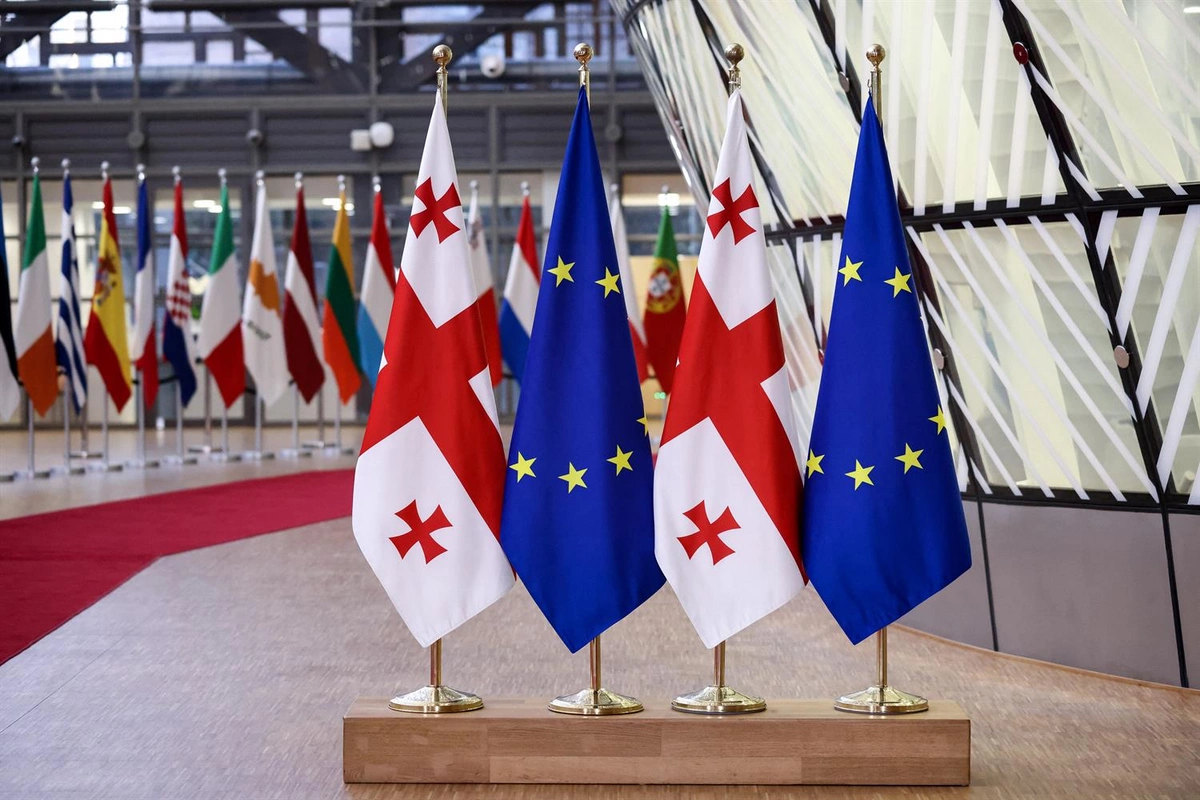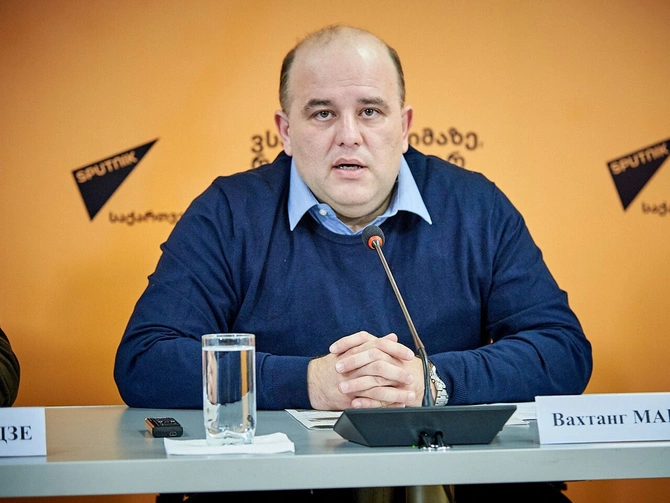
Photo: European Policy Centre
In recent years, Georgia has seen a perceptible shift in its foreign policy narrative. There is an increasing clamor for reestablishing diplomatic ties with Russia and bolstering connections with its northern neighbor-a move that has stirred both domestic debate and international scrutiny. Concurrently, a growing segment of the political landscape is advocating for a reduction in ties with the European Union, Western nations, and various global institutions. Notably, the suspension of Georgia’s participation in the Parliamentary Assembly of the Council of Europe (PACE) has raised pressing questions about whether the country is charting a fundamentally new course.
Photo: Sputnik
In an interview for The Caspian Post, prominent Georgian political scientist Vakhtang Maisaya has weighed in on these developments. In a pointed dismissal, Maisaya decried assertions that Europe represents a “threat” to Georgian sovereignty as “utter nonsense.” He contends that such claims are merely echoes of Kremlin propaganda, propagated locally by what he describes as “rashists” influenced by Russian political operatives.
“Georgia has always been an integral part of Europe-this is an undeniable historical fact,” Maisaya declared. He recalled that during the brief period of the Democratic Republic of Georgia (1918-1921), the nation cooperated with its neighbors Azerbaijan and Armenia to join European institutions such as the League of Nations. For Maisaya, the country’s historical and cultural ties with Europe are immutable, despite ongoing Russian efforts to reorient Georgia towards its sphere of influence.
Maisaya further argued that the current conflict with Russia transcends traditional military engagements, evolving instead into what he characterizes as a “cognitive war.” According to him, the Kremlin’s objective is to reshape public sentiment in Georgia, redirecting the nation from its pro-European trajectory toward alignment with an authoritarian, if not totalitarian, regime in Moscow. “This is not merely a military confrontation-it is an information war designed to steer Georgia away from Brussels and toward Moscow,” he explained.
The political scientist emphasized that support from Europe and international institutions is crucial in Georgia’s struggle for democracy and sovereignty. He sees Europe as a steadfast ally not only for Georgia but also for regional neighbors like Azerbaijan and Armenia, all of which aspire to strengthen democratic institutions in the face of Russian aggression. “Europe and its institutions remain the bulwark for Georgia’s quest for freedom and democratic progress,” Maisaya asserted.
In a further critique of Russian policy, Maisaya highlighted Moscow’s recognition of the so-called independence of Abkhazia and South Ossetia-a move that flagrantly contradicts international law and exemplifies Russia’s broader strategy to dominate the Caucasus. “It is Russia that stokes separatism in the South Caucasus,” he noted, underscoring the pivotal role of Europe in safeguarding Georgia’s territorial integrity.
Maisaya also called attention to a domestic pro-Russian faction within Georgia, singling out the “Georgian Dream” party for its apparent alignment with Russian interests. He argued that these domestic forces, in their pursuit of reestablishing diplomatic relations with Russia, ignore the historical reality of Russian aggression-recalling Russia’s initiation of hostilities in 2008 and its subsequent annexation of Georgian territories.
In conclusion, Maisaya stressed that Georgia’s future hinges on its continued commitment to a pro-European path, even in the face of mounting pressure from Moscow. “Europe and international institutions are the principal defenders of Georgia’s sovereignty, independence, and democratic progress,” he concluded, emphasizing that the nation’s long-term prosperity depends on its steadfast alignment with European values and institutions rather than succumbing to Russian influence.
Share on social media